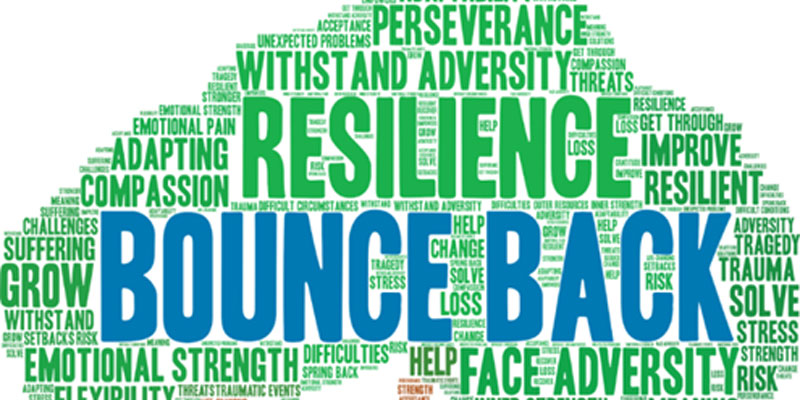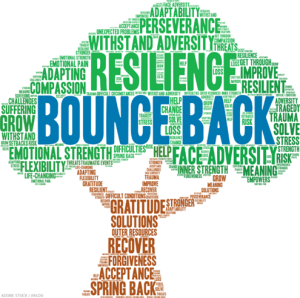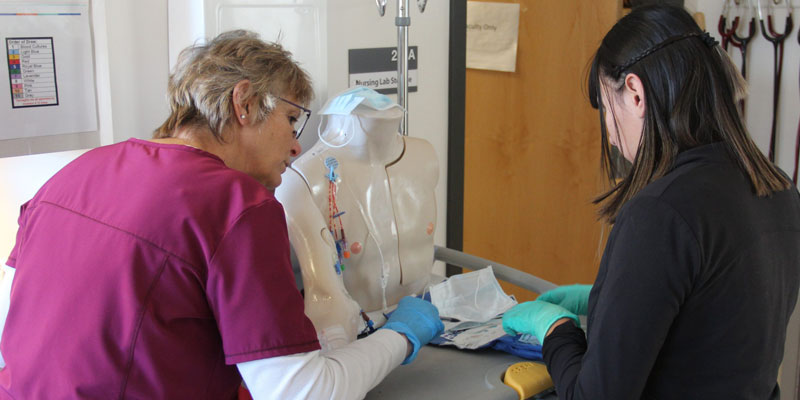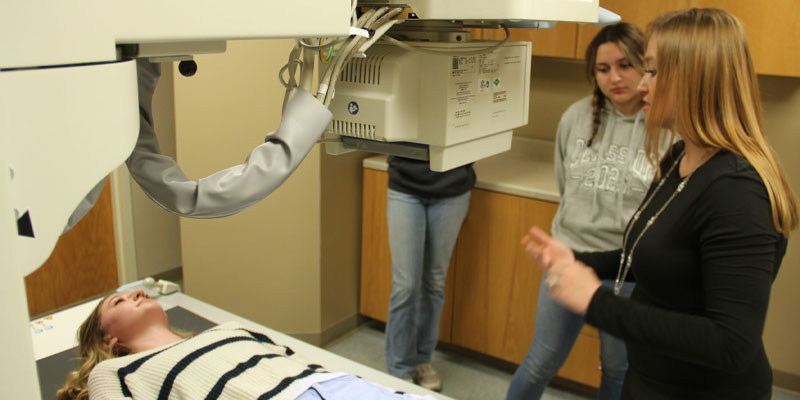
Starting college and transitioning to a new school can be challenging on many levels because there are new demands, responsibilities, relationships, expectations, and cultures. You can also be developmentally vulnerable to developing some mental health related issues between the ages of 18- to 25-years-old.
In times of transition, we are often faced with stress. When this becomes too much, it can lead to distress. This is where resilience comes in. Resilience is the ability to adapt or bounce back after stressful situations or adversity. It increases capacity for change.
Resilience can help you:
- Cope with the demands of college
- Prevent burnout, anxiety, and depression
- See past challenges to find ways to enjoy life and better handle stress

Here are six tips to build resilience to ease the transition:
Focus on what you can control
- When facing change, a lot of what creates worry and stress is outside our immediate control. It can help to ask yourself, “Is this something I can control?”
- If the answer is yes, make a plan or take a step toward resolving the issue.
- If the answer is no, ask yourself if you can change your attitude or views toward the situation.
Recognize if you are feeling stress and take steps to manage it
- Acknowledge that what you feel is normal.
- Find someone trusted you can talk to if that is helpful.
- Limit your exposure to news and social media.
Check on your thought patterns
- How we think about things affects how we feel about them, and sometimes our first impression of things is not accurate. Some helpful ways to shift our thinking include:
- Turning crisis into opportunity. Viewing things as challenging, not dangerous. Viewing things as an opportunity, not a hassle.
- Nurturing thoughts that are kind to yourself.
- Being present in the moment.
Be flexible
- The ability to be flexible and adaptive can help navigate and embrace change.
- It is good to have goals and expectations. It is also good to know when they need to be shifted.
Practice self-care
- Prioritize your needs. Give yourself space. You are important! Make sure to be intentional about checking your approach to time management, organization, problem-solving and stress management (sleeping well, eating well, exercising well, socializing well).
- Ensure you get breaks. Find a place where you can be alone and have some reflective time. Even a brief step away to decompress can be helpful.
- Keep nutritious snacks on hand you can easily pick up and eat anytime.
- Maintain a healthy sleep schedule and practice good sleep hygiene, such as turning off screens before bed and going to bed around the same time every night.
- Keep a journal. Whether it is a gratitude journal, a simple recount of the day’s events or writing down your thoughts and worries, journaling can be an effective self-care strategy.
Find your support and use it!
- No one can navigate this life alone all the time, especially when facing change and stress.
- Know who is in your corner and lean on them when you need it. There is great strength that comes with asking for help when you need it.
It can be helpful to pay attention to some of these things as they could be an indicator of need for additional support:

Appearance:
- Deterioration in grooming and hygiene
- Significant weight loss or gain
- Changes in clothing that do not match the changes in temperature
Behaviors & Emotions:
- Poor or erratic attendance to class or frequent lateness
- Feeling anxious, depressed, irritable, angry, or sad
- Lethargic or always tired
- Lack of interest in activities that are typically enjoyed
- Feelings of helplessness and/or hopelessness
- Noticeable changes in habits
- Withdrawal from normal activities
- Uncharacteristically poor performance in classes
- Excessive anxiety about class performance or evaluation
- Frequent tearfulness or intense emotion (hostile and/or dramatic behaviors, excessive and/or rapid speech)
- Substance use in an inappropriate setting
- Thoughts and/or behaviors toward self-harm, suicide or harming others
Cognitive Functioning:
- Difficulty concentrating
- Increased forgetfulness
- Obsessing over an event or issue
- Disjointed thoughts
- Thoughts that are out of touch with reality
Interpersonal Functioning:
- Inappropriate dependency on professor/mentor/parent
- Avoidance of professor/mentor/peers/parent
- Disruptive behaviors in class
- Unusual comments or behaviors
- Expressed concerns from peers, faculty and/or staff
Are you a student looking for mental health support? Do you know a student who could benefit from this type of support? Colorado Northwestern Community College is here to help. Contact Brittni Turner, the Craig campus Director of Student Well-being, at Brittni.turner@cncc.edu or (970) 824-1123. Her office is located at 150J in Student Services.

Brittni Turner, MS, LPC, received her Master of Science in Counseling in 2015 and a Bachelor of Science in Family and Community Services in 2009, both from the University of Wyoming. She specialized in bereavement counseling for nine years before joining Colorado Northwestern Community College (CNCC) as the Director of Student Well-being at the Craig Campus. Brittni utilizes a variety of modalities in her work with clients to meet them where they are in their journey. She also has specialized training to provide Equine Assisted Psychotherapy and EMDR.
Within her role at CNCC, Brittni provides short-term individual counseling at no cost to students, group support as needed, wellness education and programming, mental health emergency support during working hours, and referrals to other resources as appropriate.
Access to mental health support is extremely important at CNCC. If you need help, we have on campus therapy in Craig and access to teletherapy services in Rangely through Rangely Family Medicine.


